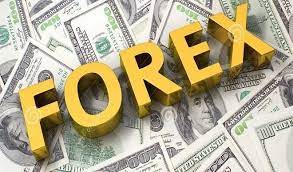The Nigerian naira continued its modest but steady recovery in the foreign exchange market on Thursday, strengthening to N1,605 per U.S. dollar in the parallel market — up from N1,610/$1 on Wednesday — as festive-season demand, stronger investor sentiment, and recent regulatory interventions converge to boost confidence in the local currency.
This marks the second time in four days that the naira has appreciated at the parallel market, signaling a potential turning point after months of volatility.
According to parallel market data, the naira opened the week on Monday at N1,610/$1, appreciated to N1,607/$1 on Tuesday, held steady on Wednesday, and further strengthened to N1,605/$1 on Thursday.
The gains come just as Nigeria prepares for the Eid-ul-Adha public holidays, declared for Friday, June 6, and Monday, June 9, 2025.
In the official market, the Central Bank of Nigeria (CBN) reported that the naira closed at N1,564/$1 on Wednesday, continuing a trend of appreciation from N1,579/$1 on Tuesday and ₦1,580/$1 on Monday.
Although Thursday’s official market closing figures were not available at press time, early trades and interbank reports suggest the positive momentum is holding.
Against the British Pound Sterling, the naira began the week at N2,175/£1, appreciated to N2,165/£1 on Tuesday, slipped briefly to N2,210/£1 on Wednesday, and rebounded to N2,160/£1 by Thursday.
Similarly, the naira traded at N1,810/€1 against the Euro on both Monday and Tuesday, weakened slightly to N1,815/€1 on Wednesday, but improved to N1,805/€1 on Thursday, according to sources.
Reacting, Dr. Mojisola Adebayo, an economist at Lagos Business School, noted: “The narrowing gap between official and parallel market rates is a positive signal for currency unification. If this trend holds, it will help tame inflation and restore investor trust in Nigeria’s forex market.”
Tunde Omisore, a currency trader at Eko FX Bureau, said the recent rebound is partly seasonal: “We see stronger naira performance every festive season. But this time, the fundamentals — like increased dollar supply and fewer speculators — suggest something more sustainable.”
Meanwhile, David Aluko, a senior research analyst at CardinalStone, urged caution:
“Yes, there’s been short-term improvement, but maintaining it requires more than holiday-driven naira demand. The CBN must stay aggressive on inflation targeting, monetary tightening, and attracting non-oil inflows.”
